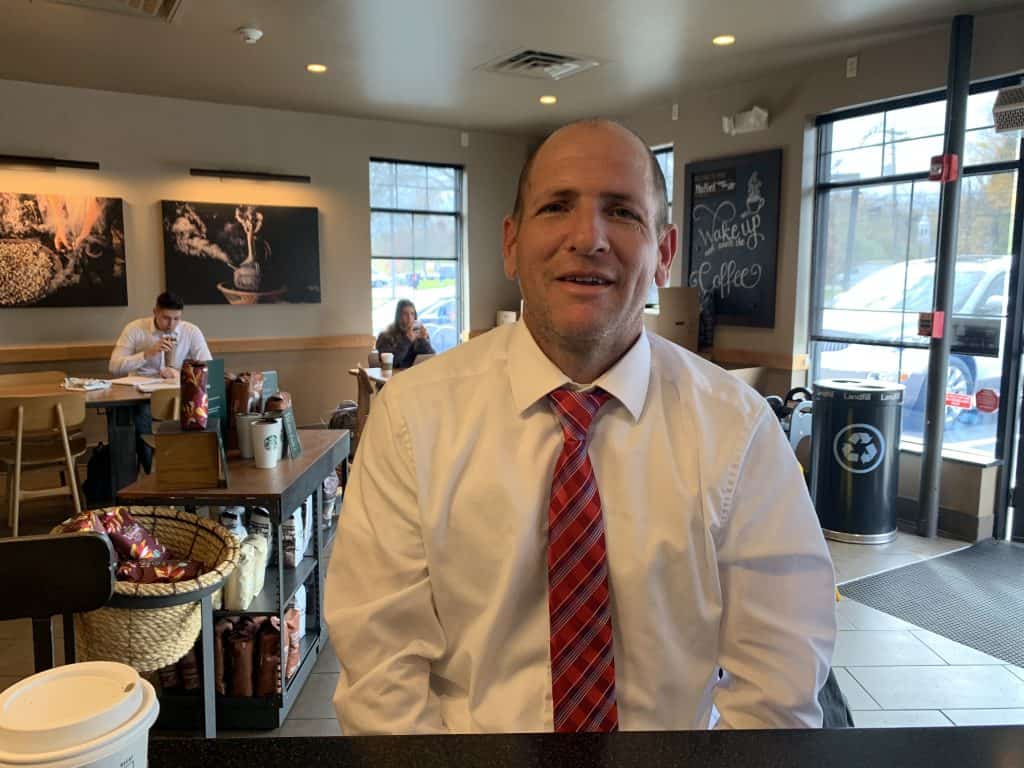

For those experiencing suicidal thoughts and ideations, a six-digit number can connect them to an anonymous counselor who can help. One of the counselors hails from Tabernacle.
Stevie Stevenson was recently certified to be a counselor with the Crisis Text Line — 741-741 — to help those for whom he feels a great deal of sympathy.
“When I was a kid, I had two friends who died by suicide,” Stevenson said. “My two boys, they had a high school friend who took his own life, and a cousin who took her own life. I firmly believe that they could have been saved if we just asked.”
He stumbled across research online and found that for many young people, including his own children, they’re more willing to chat with someone over text for both mundane and sensitive topics.
The Crisis Text Line is a nonprofit organization that provides crisis intervention via text. The free service (except for wherever message and data rates apply) connects a person with an anonymous volunteer and is available 24 hours a day.
Those in crisis can initiate a conversation by texting “hello” or any other message to 741-741.
According to the nonprofit’s website, “With over 100 million messages processed to date, we’re growing quickly, but so is the need.”
Stevenson said he was inspired to be a volunteer after watching the founder, DoSomething’s CEO Nancy Lublin’s, TED Talk where she discussed DoSomething’s text campaigns, and they’d often get back messages about kids being bullied, addicted to a drug and, for her, the most troubling — “‘he won’t stop raping me…it’s my dad. He told me not to tell anyone, are you there?”
Outside of the nonprofit, Stevenson said that he works at Virtua Health of New Hanover (formerly Lourdes Health) in military affairs and has had experience in crisis training in previous employment.
“I was able to attend a crisis intervention team training with multiple departments that was put on by the [National Alliance on Mental Illness], and that kind of piqued my interest more in mental illness and in helping people who are struggling with mental illnesses,” Stevenson said.
He added throughout the week, he logs a maximum of four hours on the Text Line where he estimates conversations lasting around an hour. Volunteers interact with people through a platform; none of the texts are delivered directly to a counselor’s phone number.
Following the initiation of a crisis intervention, Stevenson said he’s learned that the ideations don’t come out of the blue, and typically have an underlying reason prompting it, whether it’d be abuse or an overwhelming amount of stressors.
While he’s helping people come down from those suicidal thoughts, Stevenson said he often takes breaks from the platform so he doesn’t get engrossed and too deeply invested in what people are going through for his own mental health.
To de-stress, he said he either does woodworking or spends time with his family. Supervisors check in frequently with the counselors to make sure they’re not overwhelmed.
“Self-care is very, very important,” he said. “I’m only on the platform for four hours a week; some people are on more. I always take my time for self-care.”
As someone’s expressing suicidal thoughts to him, Stevenson said he converses with them by asking what brought them to this point, how things are going in other aspects of their lives, if they have any healthy coping mechanisms and if they’ve confided in another person about what they’re going through.
“We want to build a rapport,” he said. “We want them to trust us and validate their feelings. We want them to know that what they’re going through at this moment, is not the way they’re going to feel forever. It’s something that’s going on right now. It’s OK and natural to feel this way.”
He added the stigmas surrounding mental illnesses and suicide keeps many people from coming forward about what they’re going through and poses more risks as they become afraid to seek help. He hopes for people to understand that it’s OK to ask someone, genuinely, if they’ve had thoughts of taking their own lives.
In the future, he hopes for more school districts to publicize the crisis number for their students so they have it ingrained in their brains. He said a district such as Lenape Regional could create a keyword with the nonprofit to see how many students are in need of help, and how the district can address it.
To learn how to be a volunteer counselor with the Text Line, visit CrisisTextLine.org/Volunteer.
Editor’s Note: If you, or someone you know, are experiencing thoughts of suicide or need help, contact the National Suicide Prevention Lifeline at (800) 273-8255, the 2nd Floor Youth Helpline of N.J. at (888) 222-2228, Burlington County’s mobile crisis line at (877) 652-7624 or the Crisis Text Line at 741-741.









